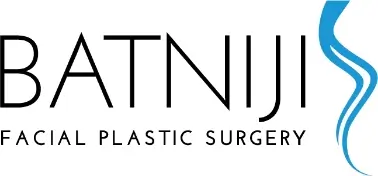All eyes have been focused lately on Julie Chen, co-host of CBS’s The Talk, who has had to defend her decision to have facial plastic surgery earlier in her career. The CBS daytime television personality revealed her “secret” that she had undergone eye surgery after a news director – her boss – told her she couldn’t make it in the television broadcasting business without it.”My secret dates back to — my heart is racing — it dates back to when I was 25 years old and I was working as a local news reporter in Dayton, Ohio,” said Chen, who recalled her experience on-air during her show last month. “And he said, ‘You will never be on this anchor desk, because you’re Chinese.’ He said ‘Let’s face it Julie, how relatable are you to our community? How big of an Asian community do we really have in Dayton? … On top of that because of your heritage, because of your Asian eyes, I’ve noticed that when you’re on camera, when you’re interviewing someone you look disinterested and bored because your eyes are so heavy, they are so small.’ “That was not only all Chen needed to hear, but now what she could clearly see each day as her insecurity grew in measures. The dagger had been placed in both her career and in her head.
“All I could see was my eyes,” she remembered. “It was racism.”
Desperately chasing a career in broadcasting and a move to New York City, Chen took the bait and had cosmetic plastic surgery to change the size of her eyes.
Dramatic Difference
Chen, 43, showed her before and after pictures, saying “how dramatic” the surgery was, and pointing out, “The eyes are bigger. I look more alert… more expressive.”
By no coincidence, Chen’s television career began to take off. She said she has no regrets with her decision and has moved on, taking her Chinese heritage proudly with her.
Chen’s revelation has made plastic surgery a topic of conversation, particularly beauty, ideals and ethnicity. Some of the talk, she admits, has been tough to stomach.
“I wasn’t surprised that there would be haters judging me for what I did, but what was hurtful was that the hateful comments that I’ve read, where people were judging me, were people within my own community,” said Chen. “It was comments like, ‘way to give in to the Western standards of beauty,’ ‘you’re denying your heritage, you’re trying to look less Asian.’ ”
Not Fooling Anyone
Chen is the first to admit she still looks Chinese and “isn’t fooling anyone.”
Most Asians are born with a “single eyelid”, or an eyelid without a natural crease, and there is no denying heritage. Cosmetic surgery can be a tool to help patients feel better about themselves and their appearance without compromising their ethnic background. In fact, Asian eyelid surgery is a popular cosmetic procedure that creates a “double eyelid” where none exists, creating a natural crease within the upper eyelid.
A desire to look like everyone else is as common as plastic surgery. Certain looks are made popular and can fade in a moment. That’s all the more reason to take facial plastic surgery seriously. After all, eyelid surgery – clinically referred to as blepharoplasty – is a medical procedure.
Blepharoplasty is traditionally use to rejuvenate the eye area by removing excess skin, fat or muscle from droopy upper and lower eyelids that can make you appear tired when you are not or, worse, impair vision. It is important to understand that blepharoplasty corrects baggy skin under the eyes, sagging upper eyelids or drooping eyelashes, but does not reinvent eyebrows or eliminate wrinkles.
Combination Surgeries
Some patients don’t stop at blepharoplasty but instead combine the procedure with other cosmetic surgeries including brow lifts or facelifts to improve droopy eyebrows, crow’s feet and facial sagging that forms in the area when skin naturally loses elasticity over time. No matter how well you care for your skin, Father Time is destined to catch up with you. Throw in genetic factors and body chemistry and you may appear to have aged quicker than others.
The good news is that plastic surgery may restore a youthful and refreshed appearance to your eyes. In most cases, incisions are made along the creases of the upper eyelid and within the lash line of the lower eyelid. Excess fat, muscle and skin may be removed to restore a firmer, more youthful and rested appearance.
Eyelid surgery is among the most common plastic surgeries in the United States. The American Society of Plastic Surgeons ranked blepharoplasty as the fourth most popular cosmetic procedure in 2012.
Signs of Good Health
Most people see that eyes are usually the first sign of good health, age and vitality, and the focus of attention from those you meet. A study by the University of Tennessee Health Science Center in Memphis, which appeared in an issue of Ophthalmology, used eye-tracking methods to analyze where 47 young adults most often fixed their gaze when asked to evaluate signs of age or fatigue among older people. Although the “eye area” represents a mere 21 percent of the total face, study participants spent almost half of their time looking at this part of the face while assessing age. By comparison, the nose garnered about 19.2 percent; the forehead, 13.3 percent; and the area between the eyebrows, 10.6 percent. What’s more, in an assessment of fatigue, study participants spent 44.7 percent of the time looking at the eyes, 18 percent of the time at the nose, 13.7 percent of the time at the forehead, and 12.3 percent at the area between eyebrows.
If seeing is to be believed, then the eyes have it. Although appearance does not have to change in order to succeed, cosmetic plastic surgery can help boost self-confidence and self-esteem, important components in any walk of life. Plastic surgery is never an easy decision, nor should it be. What is important is to look the way you feel.
Seek and You Shall Find Advice
See for yourself. Seek the advice of an experienced board-certified plastic surgeon who can review your medical history and discuss the possible changes – both physically and emotionally – that cosmetic procedures can add to your lifestyle.
Facial plastic surgeon Dr. Rami K. Batniji has extensive knowledge of facial anatomy and understands what measures need to be taken to give you the look that you want and not what others – no matter how well-intentioned – may think you should have.
Before choosing a cosmetic facial procedure, let a board-certified plastic surgeon review your medical history and help you decide what treatment is right for you. To learn about the protocols, potential risks and realistic outcomes of facial plastic surgery, contact Newport Beach Blepharoplasty expert Dr. Batniji at (949) 650-8882 or visit https://www.drbatniji.com/.

